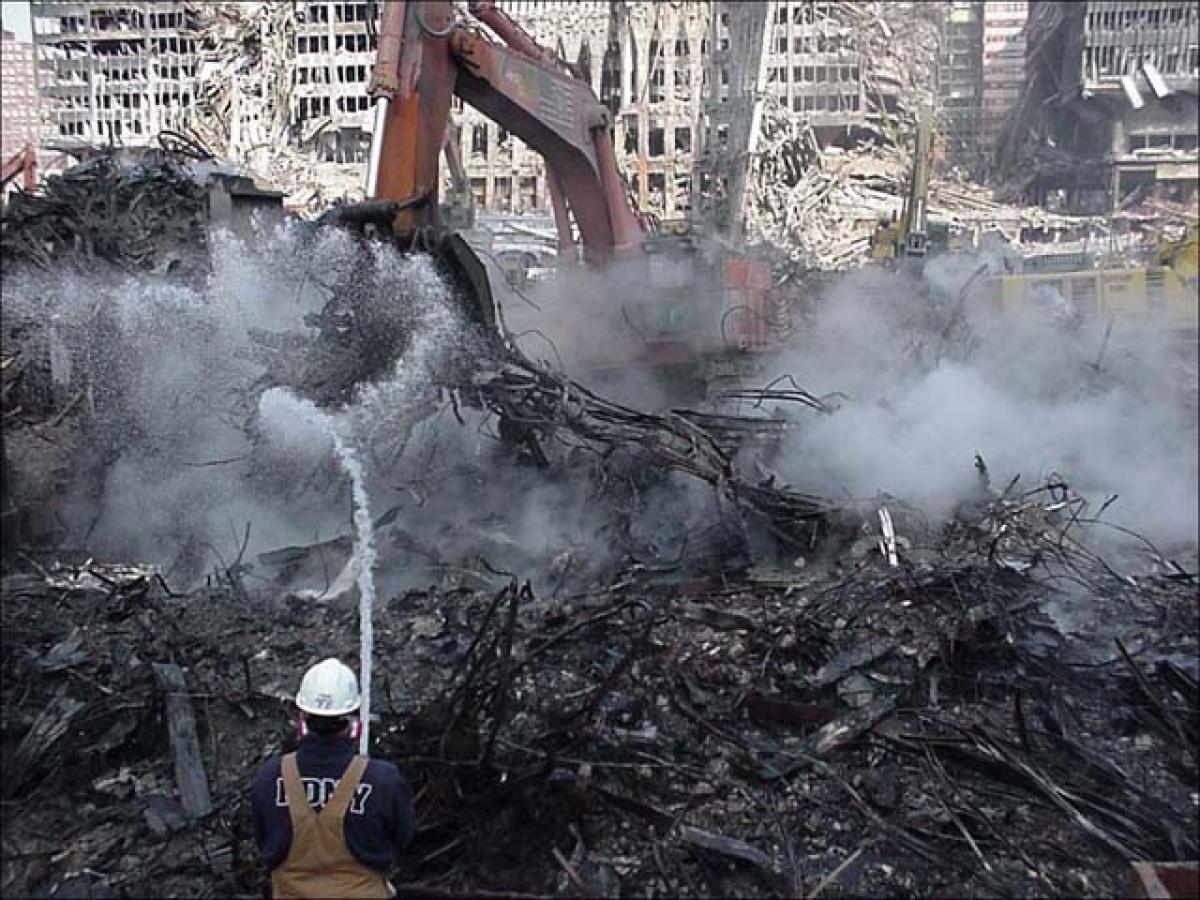Live
- Railway milestone: 18-coach trial run on Katra-Budgam track in J&K
- 22 Maoist militia members surrender
- Transforming MBNR’s academic landscape
- Demand for implementation of comprehensive caste census
- MLC Kavitha Welcomes Turmeric Board Announcement, Criticizes Exclusion from Inauguration
- EPFO simplifies process for funds transfer, correcting personal details
- Revanth Reddy and Sridhar Babu meets Capital land Group, announces major investment in Hyderabad
- Ganja and Hash Oil Seized in Madhapur: Two Arrested
- Sukriti Bandreddy Shines in 'Gandhi Tata Chettu': Sukumar Praises Daughter’s Performance
- Collector calls on everyone to maintain cleanliness
Just In

Radioactivity in steel could dent Modi effort. Radioactively contaminated steel is a new cause for concern for manufacturing in India. An ironical steely paradox for Indian metal recyclers, on occasions steel products made in India are rejected at foreign ports of entry as they show up as a radiation hazard.
Radioactively contaminated steel is a new cause for concern for manufacturing in India. An ironical steely paradox for Indian metal recyclers, on occasions steel products made in India are rejected at foreign ports of entry as they show up as a radiation hazard.

Recently a shipment of utensils from India was confiscated at the Heathrow Airport in London as one of the packets exhibited high levels of radiation. This causes huge discomfiture for India';s steel manufacturing sector and bad name for the country.
The Indian origin importer, a UK-based restaurant owner, is now running from pillar to post to avoid being penalised and battles an expensive litigation for what is really no fault of his. The original manufacturer of the utensils is currently untraceable.
Obviously, a large batch of contaminated steel escaped scrutiny. Who knows where rest of the radioactively laced material is lying? Urgent steps are needed to trace rest of the missing utensils. Since radiation has no smell, taste or colour and is hard to detect, any instance of radioactive leaks or contamination causes a huge scare.
A false alarm of a radiological leak at the Indira Gandhi International Airport in New Delhi almost brought operations of the cargo terminal to a halt. Recently the mere fear of the presence of radioactively contaminated gold left the government scurrying to contain damage in the high-end jewellery market.
The country';s robust but unorganised steel recycling industry so often runs into trouble as the finished products it makes are found to be contaminated with radioactive elements beyond the permissible limits.
Some urgent measures are required to be put in place by the government curb this menace since in the business as usual approach the new ';Make in India'; effort could take a beating in the long run.
Nirmala Sitharaman, Minister of State (Independent Charge) in the Ministry of Commerce & Industry recently told the Lok Sabha "in view of the risk to human life, property and national security, import of metal scrap in un-shredded compressed and loose form is permitted only through 26 designated ports" where portable scanners are being put in place.
In addition pre-shipment certification is necessary to import scrap but then obviously some loop holes remain as contaminated steel continues to surface A six-year study by the US Homeland Security showed that of the 123 shipments the Americans confiscated for radioactive contamination more than half had originated from India, highlighting that a lurking problem does exist needing to be tackled urgently.
According to K S Parthasarathy, former Secretary of India';s nuclear watchdog Atomic Energy Regulatory Board (AERB), "radioactive contamination of steel products continues to be an issue in spite of massive efforts." Just how does radioactivity creep into steel manufactured in the country? A common contaminant of steel is a radioactive element called Cobalt-60.
It is widely used in the hi-tech industry as a radiation source for example in cancer treatment and in industrial applications like irradiating foods and for sterilising surgical equipment. This radioactive element when it slips unnoticed into the steel making process, it leaves a trail that is hard to erase. According to the Department of Atomic Energy (DAE) most of the contaminations can be sourced to imported scrap metal, though domestic contamination can also not be ruled out fully.
AERB insists that India has a robust program to track all radioactive sources and hence chances of domestic contamination are minimal. However, the Mayapuri radiation incident of 2010 where a scrap dealer lost his life after the University of Delhi recklessly disposed of a Cobalt-60 machine blew the lid of this ticking time bomb.
Until date, the scrap market of Mayapuri of Delhi remains unsafe as scant radiation monitoring takes place. India is the third largest importer of steel scrap in the world next only to Turkey and South Korea; in 2013-14 the country imported about 5.7 million tonnes of steel scrap worth Rs 30,456 crore. A 2015 estimate suggests that 60 per cent of the Indian steel is produced using imported scrap.
This recycled steel is largely exported back. This imported metal scrap occasionally comes in un-noticed contaminated with radioactive sources like Cobalt-60. Interestingly, in India imported scrap is still not fully scanned for radioactivity. A few years ago, Germany confiscated a whopping 150 tonnes of steel as it was contaminated with radioactive Cobalt-60.
About a half of this was sent back to India and most of it seems lies locked up in Germany. France took action by removing electrical installations that were made in India as they showed a high level of radioactivity. On the other hand, Western nations use such punitive measures as non-tariff barriers to curb exports from India.
By Pallava Bagla

© 2025 Hyderabad Media House Limited/The Hans India. All rights reserved. Powered by hocalwire.com







